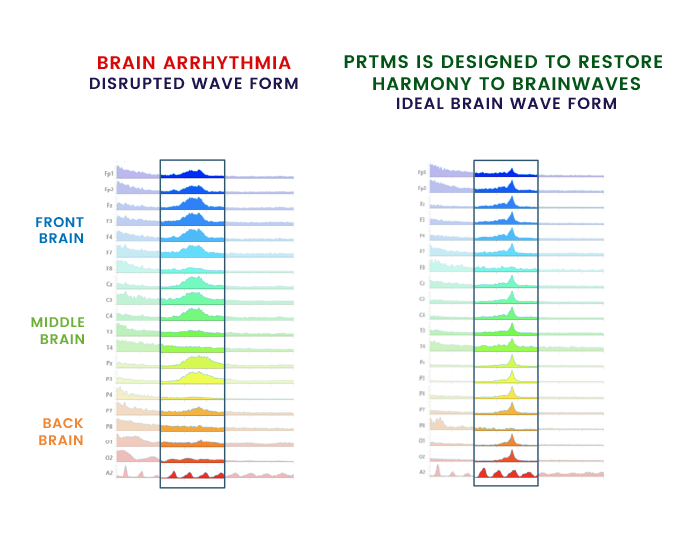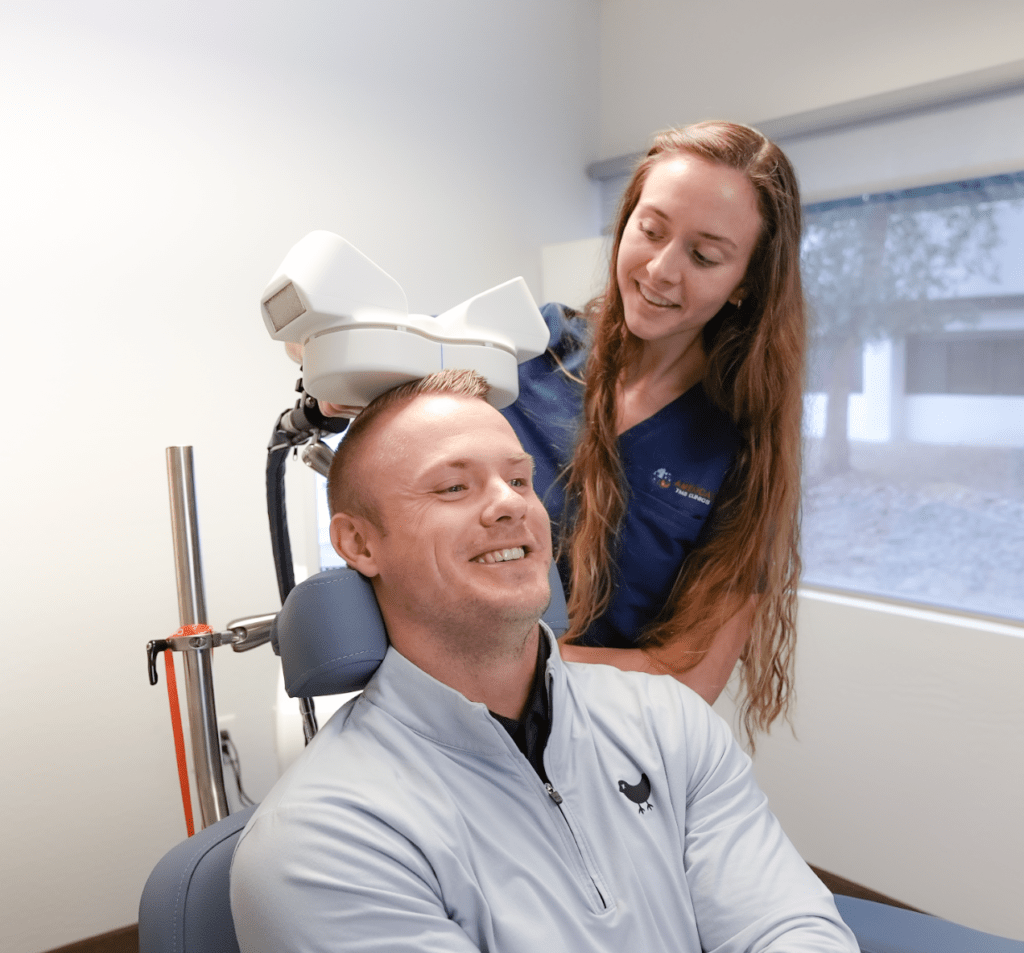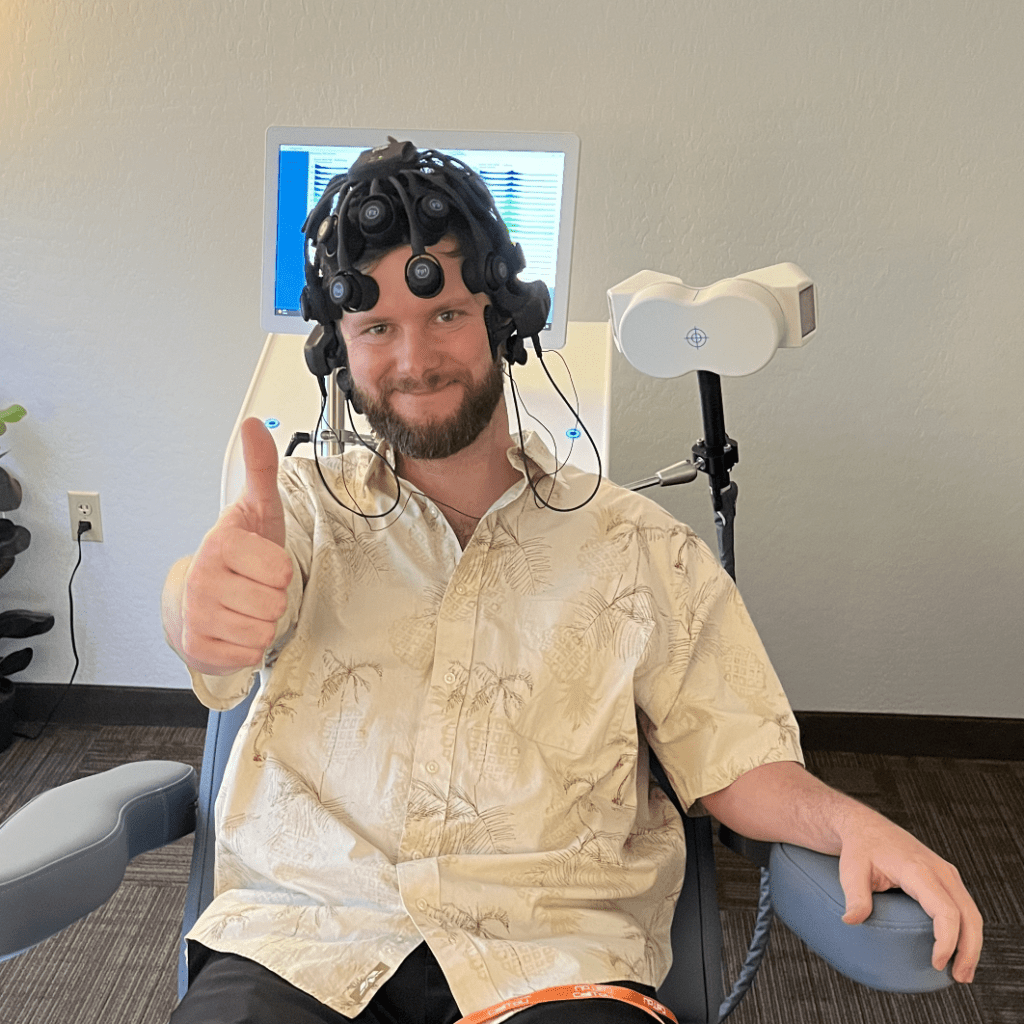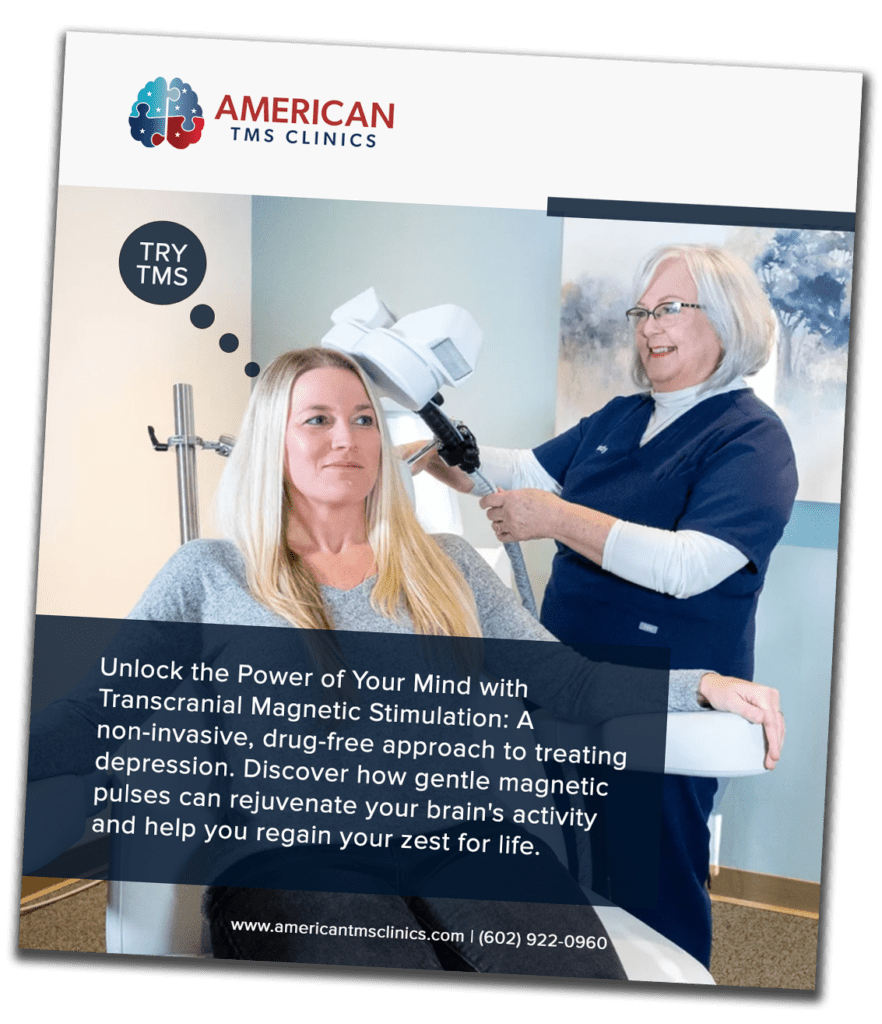Achieve Depression Remission. Let's get your patients there.
By partnering with you, we aim to deliver a complete care experience for your patients, ensuring you are well-informed and integral to the TMS Therapy process.
Or Call Us At (602) 922-0284
5020 E Shea Blvd Suite 120 Scottsdale, AZ 85254

Revolutionize Treatment with Brain Scan Technology: Precision & Personalization
Welcome to our dedicated provider portal, where we illuminate the path toward revolutionizing mental health treatment with TMS Therapy with brain scan technology. Our goal is to empower you with all the information you need to refer your patients confidently and to become a part of their success story in battling depression and other mental health conditions.

- Personalized Treatment Plans: Tailored to each patient's unique brain pattern.
- Non-Invasive: A recovery path without downtime or surgery.
- Minimal Side Effects: Relief without the burden of significant side effects.
- Short Sessions: Just 20 minutes each, tailored to your busy schedule.
- Lower Dosage TMS: Minimizes side effects while maximizing results.
- EEG Brain Mapping: Visual evidence of treatment efficacy. Enhanced confidence.
Your patients medication stopped working? You're not alone.
Medications for depression can stop working after a while. When this happens, symptoms can come back for about 1 in 3 people. In these situations TMS Therapy can help.

Refer Your Patient,
We Handle the Rest
Upon referral, a Patient Consultant will contact your patient within 24 hours to discuss their medical history and the TMS treatment process, simplifying the journey from the start.
Insurance Made Simple
We’ll explain payment options to your patient and work with their insurance to determine coverage, easing the financial aspect of their treatment journey.

Here’s what your patients can expect from their experience with us:
- Patient Coordinator: Guides patients, providing support and clarity.
- Benefits Verification: Simplifies insurance coverage details for treatment.
- Psychiatric Evaluation: Tailors the approach to each patient’s needs.
- Complimentary EEG Brain Mapping: Customizes treatment with precise brain activity insights.
- Personalized Treatment Plan: Specifically designed based on evaluation and EEG results.
- Motor Threshold Determination: Sets the optimal stimulation intensity.
- 4 to 6 Weeks of Treatment: Adjusted as needed for best outcomes.

Outcomes from TMS Therapy
Our treatments target not just symptom relief but aim for full remission, offering patients a chance at a renewed life. Beyond personalized approaches, traditional TMS has also demonstrated significant success rates, improving symptoms for many individuals where other treatments have fallen short.
Traditional TMS Success: Demonstrated effectiveness in reducing depressive symptoms, often when medication hasn’t worked, offering hope and a new beginning to many.
Personalized Therapy Benefits: Enhanced by EEG brain mapping, our personalized treatments adjust to the individual’s brain activity, leading to more precise and potentially more effective outcomes that patients can use for monitoring.
Identifying a Candidate for TMS Therapy
TMS (Transcranial Magnetic Stimulation) therapy is specifically designed for adults suffering from Major Depressive Disorder (MDD) who have not achieved satisfactory improvement from one antidepressant medication at an adequate dose and duration.
Typical Insurance Criteria for TMS:
- Diagnosis of MDD.
- Attempted two or more medications.
- Undergone evidence-based talk therapy.
Typical Insurance Criteria for TMS:
- Have seen insufficient results from antidepressant medications.
- Have had partial responses to medications, but have not achieved full remission.
- Are unable to tolerate the side effects of antidepressant medications.
- Have tried and failed one or more medication trials.
- Prefer to avoid antidepressants or seek additional treatment options.
- Have a diagnosis of Major Depressive Disorder.
- (Note: TMS is not FDA-cleared for treating Bipolar Depression, Schizoaffective Disorder, or Schizophrenia.)
Potential Contraindications:
- Presence of metallic implants in the head or neck area, except for dental braces and fillings.
- A history of seizure disorders.
- Implanted medical devices, such as pacemakers.

Frequently Asked Questions
Many insurance plans cover TMS Therapy for the treatment of depression. Coverage can vary, so it’s important to verify with your specific insurance provider. Our clinic can assist in checking your coverage.
TMS Therapy is generally well-tolerated. The most common side effect is a mild to moderate headache or discomfort at the treatment site during or after sessions. These symptoms typically diminish over the first week of treatment.
A typical TMS session lasts about 20 minutes. The complete course of treatment usually consists of sessions 5 days a week for 4-6 weeks, but this can vary based on individual response.
Some patients begin to notice improvements in their symptoms within the first few weeks of treatment. However, the full benefits of TMS Therapy may not be evident until the end of the treatment course. Response to treatment varies among individuals.
TMS Therapy is typically recommended for individuals with depression or OCD who have not experienced significant improvement from antidepressant medications or who cannot tolerate their side effects. It’s also being explored for many other mental health disorders such as,
– Anxiety
– Post-Traumatic Stress Disorder (PTSD)
– Substance Abuse Addiction
– Bipolar Disorder
– Autism

Privacy Policy | Terms of Use
© 2023 Scottsdale TMS Clinics. All rights reserved.
© 2023 Scottsdale TMS Clinics. All rights reserved.

Privacy Policy | Terms of Use
